It is not convenient to compile a complete report of who is who in a multicultural nation like India. Yet the presence of these political figures reaches back to their earliest roles and positions.
The limits of authority are delineated by those who have it. Recognized as some of the most privileged in the country, the 10 politicians on our list certainly get their names from their decisions, but that’s not everyone’s primary source of strength. Prime Minister Narendra Modi, for example, has achieved quietness and secrecy while skillfully integrating it with a novelty factor to add an ambiance to his legislative mandate. From surgical strikes to economic liberalisation, volatility is the latest trend in politics. His two main force multipliers, BJP national president Amit Shah and RSS chief Mohan Bhagwat, are reshaping India’s democratic process as they craft their vision of a new India and rebuild its public debate. At the same time, ministerial ministers Arun Jaitley and Nitin Gadkari, who are lubricating the wheels of the management team to ensure GDP growth, foreign direct investment (FDI) and road construction, are serving Narendra Modi’s mainstay of sustainable development.
Chief ministers like Nitish Kumar and Mamata Banerjee who opposed the Modi policy were on the other side of the continuum. But since then, the dominant political paradigm has been shadowed by 2 unorthodox leaders, UP chief minister Yogi Adityanath and AIADMK chief Sasikala, who were unexpectedly raised from the periphery to the centre. And there is Rahul Gandhi, the ever-present assistant coach, who is yet to establish his position in the political arena. He has been able to learn from Narendra Modi, Mohan Bhagwat, Mamata Banerjee and Yogi Aditya Nath, some of the other representatives of the group.
I don’t have real-time data or personal opinion, but I can provide you a list of influential politicians in India in September 2021 as of my last knowledge update. It is important to note that political landscapes can change over time, so this list may not reflect the current landscape. Here are 10 prominent politicians of India:
1. Narendra Modi
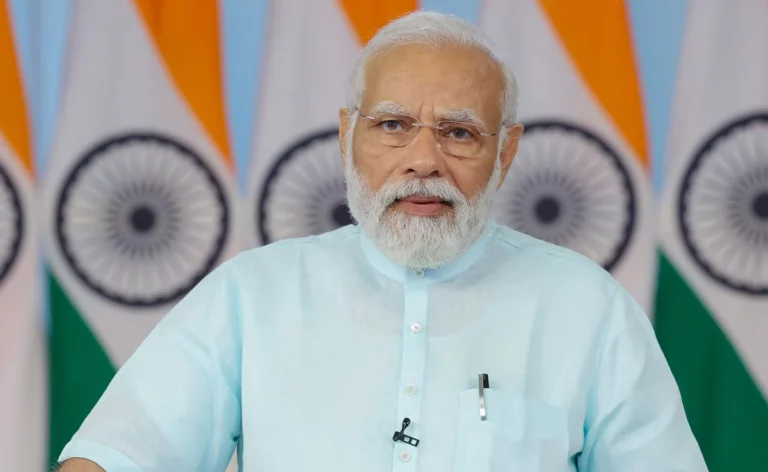
Narendra Modi is an Indian politician who served as the 14th Prime Minister of India from May 2014 to May 2019. He is a member of the Bharatiya Janata Party (BJP), a right-wing political party in India. Prior to becoming Prime Minister, Modi served as the Chief Minister of the Indian state of Gujarat from 2001 to 2014.
During his tenure as Prime Minister, Modi implemented several initiatives and policies. One of his most prominent initiatives was the “Make in India” campaign, which aimed to promote domestic manufacturing and attract foreign investment to boost India’s economy. He also launched the “Swachh Bharat Abhiyan” (Clean India Mission) to improve sanitation and hygiene throughout the country.
Modi’s government also introduced economic reforms such as the Goods and Services Tax (GST), which aimed to simplify the tax structure in India. Additionally, he launched the Pradhan Mantri Jan Dhan Yojana, a financial inclusion program aimed at providing banking services to India’s unbanked population.
The Modi government has faced both praise and criticism during its tenure. Supporters praised his efforts to improve infrastructure, enhance foreign relations, and promote economic growth. However, critics raised concerns over issues such as religious tensions, freedom of speech and human rights.
Bringing about the success of his party leadership in the 2019 general election, his rule abrogated the particularly unique status of the state of Jammu and Kashmir. The Nationality Amendment Bill was also implemented by his government, which resulted in significant protests around the world. Narendra Modi, recognized as enacting a generational change against right-wing extremism, remains the subject of domestic and global controversy regarding his Hindu conservative views and his possible role in the 2002 Gujarat disturbances, an ethnically progressive Agenda driven. Mentioned as evidence.
2. Rahul Gandhi
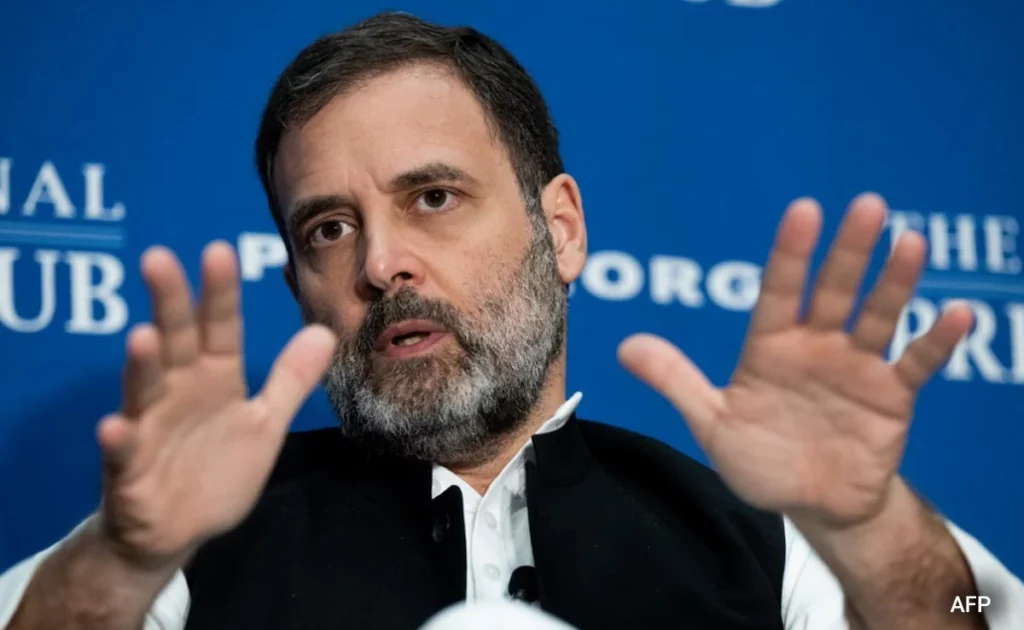
Rahul Gandhi is an Indian politician and a member of the Indian National Congress (INC) party, one of the major political parties in India. He comes from the influential Nehru-Gandhi family, which has played an important role in Indian politics.
Rahul Gandhi served as the President of the Indian National Congress from December 2017 to July 2019. He held this position during the 2019 general elections in India. However, he resigned from the post after the party’s defeat in the elections.
Rahul Gandhi has represented the Amethi constituency in the Lok Sabha (the lower house of the Indian Parliament) several times. He was first elected to the Lok Sabha from Amethi in 2004 and was re-elected from the same constituency in subsequent elections. However, in the 2019 general elections, he contested and won from the Wayanad constituency in Kerala.
While Rahul Gandhi has remained active in politics and has campaigned for the Indian National Congress in various elections, his leadership and political decisions have attracted both praise and criticism. Supporters often credit him for raising social justice issues and speaking up for marginalized sections of society. However, critics have raised concerns about his leadership style, political strategy and ability to connect with a wide electorate.
3. Amit Shah
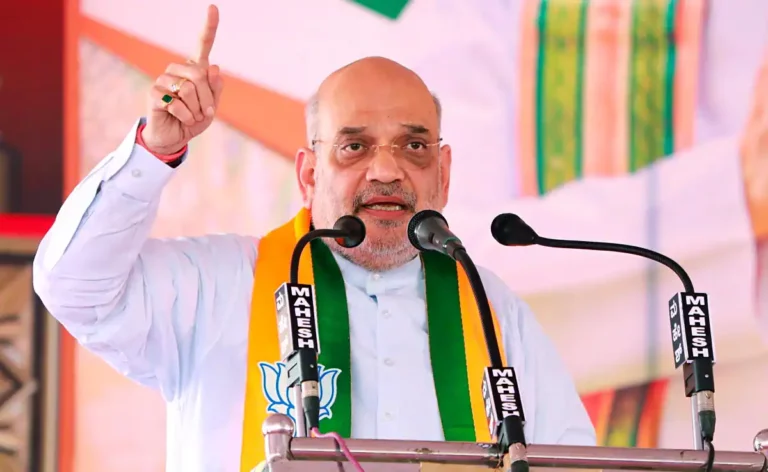
Amit Shah is an Indian politician and a prominent member of the Bharatiya Janata Party (BJP), a major political party in India. He is known for his important role in the party and his association with Prime Minister Narendra Modi. Amit Shah has held many important positions in both the party and the government.
Amit Shah has served as the President of the BJP from July 2014 to January 2020. During his tenure as party president, the BJP achieved significant success in several state elections and the 2019 general elections in India.
He has also served in various ministerial positions in the Government of India. From May 2019 to July 2021, he served as the Minister of Home Affairs, one of the most important and influential positions in the government. As Home Minister, Shah was responsible for overseeing internal security, law and order and India’s border issues.
Amit Shah is known for his strong leadership style, strategic political acumen, and organizational skills. He has played a key role in shaping the BJP’s political strategies and has been involved in important policy decisions of the government.
4. Arvind Kejriwal
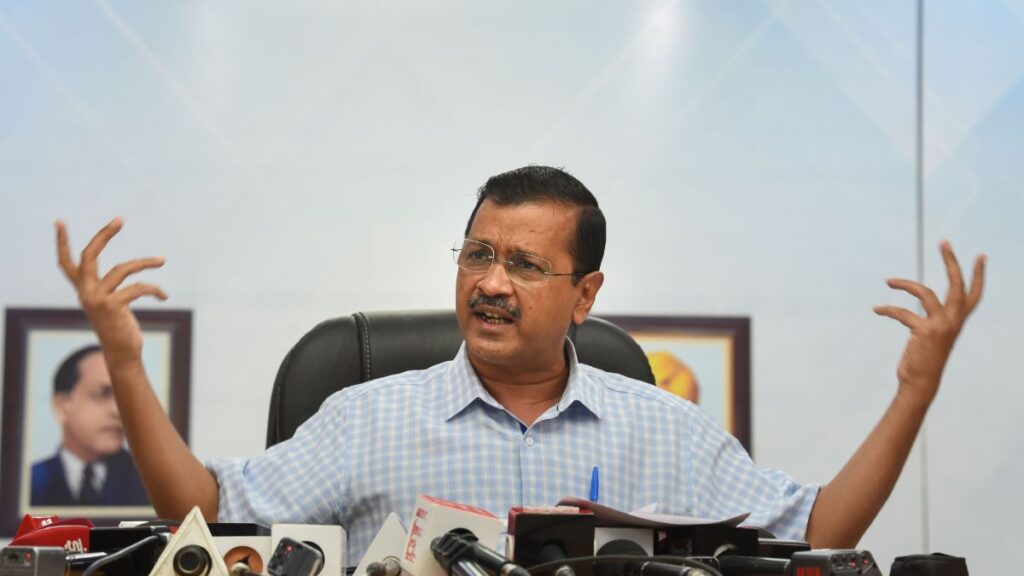
Arvind Kejriwal is an Indian politician and the current Chief Minister of the Capital Territory of Delhi, India. He is the founder and leader of the Aam Aadmi Party (AAP), a political party focused on anti-corruption and good governance.
Kejriwal, a former civil servant, rose to prominence in 2011 during the anti-corruption movement in India. He played a key role in the formulation of the Jan Lokpal Bill, a proposed anti-corruption law. In 2012, he launched the Aam Aadmi Party with the aim of bringing clean and transparent governance in Delhi.
In December 2013, Arvind Kejriwal became the Chief Minister of Delhi for the first time after his party won a majority in the Delhi Legislative Assembly elections. However, he resigned from the post in February 2014 citing difficulties in passing the Jan Lokpal Bill. In the subsequent elections held in February 2015, the AAP won a landslide victory and Kejriwal was re-elected as the Chief Minister of Delhi.
As Chief Minister, Kejriwal has implemented various initiatives in Delhi. Some notable ones include Mohalla Clinics, which are neighborhood health centers that provide free primary health services, and the Delhi Jal Board’s initiative to provide free water to certain sections of the population. The AAP government has also focused on education reform and improvement of public schools in Delhi.
Arvind Kejriwal has been a polarizing figure in Indian politics. Supporters appreciate his focus on issues like corruption, clean administration and welfare measures. However, critics have raised concerns about his confrontational approach to politics and questioned the implementation and sustainability of some of his policies.
5. Mamata Banerjee
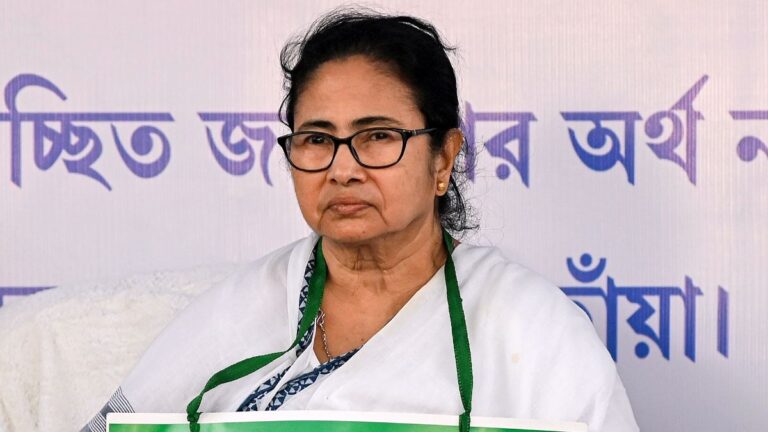
Mamata Banerjee is an Indian politician and the current Chief Minister of West Bengal, a state in eastern India. She is the founder and leader of the All India Trinamool Congress (AITC), a political party based in West Bengal.
Mamata Banerjee has been a prominent figure in West Bengal politics for several decades. He has held various political positions at the national level in India including Minister of Railways, Minister of Coal and Minister of Human Resource Development.
Banerjee is known for her strong grassroots support and her role in leading the opposition against the Communist Party of India (Marxist)-led government in West Bengal. In 2011, her party AITC won a landslide victory in the state assembly elections and she became the Chief Minister of West Bengal. She was re-elected in 2016 and 2021, further consolidating her political dominance in the state.
As Chief Minister, Mamata Banerjee has implemented several welfare and development programs in West Bengal. Some of her notable initiatives include Kanyashree Prakashan, which aims to empower girls through education and financial aid, and the Swasthya Sathi scheme, which provides health insurance coverage for the people of West Bengal.
Mamata Banerjee’s political style is often characterized as being populist and focused on the interests of marginalized sections of society. She is known for her strong personality and vocal opposition to the policies of the central government.
6. Yogi Adityanath
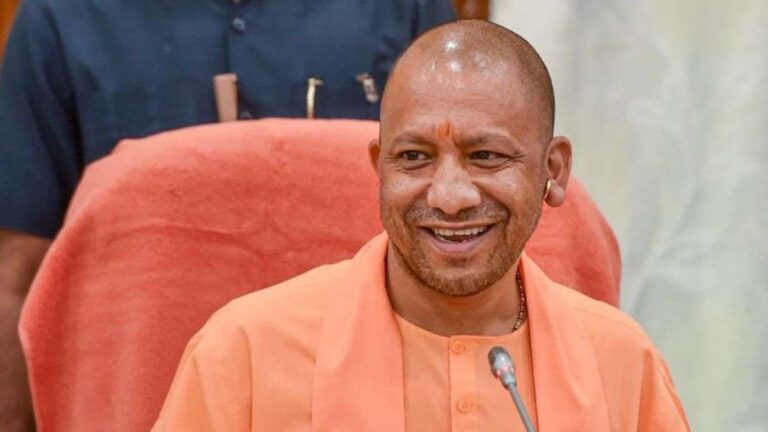
Yogi Adityanath, born as Ajay Mohan Bisht, is an Indian politician and a prominent member of the Bharatiya Janata Party (BJP). He is serving as the Chief Minister of the Indian state of Uttar Pradesh since March 2017.
Before entering politics, Yogi Adityanath was associated with the Gorakhnath Math, a prominent Hindu temple in Gorakhpur, Uttar Pradesh. He became the head priest of the temple in 1994 after the death of his guru, Mahant Avaidyanath.
Yogi Adityanath has been the Member of Parliament (MP) from the Gorakhpur constituency of Uttar Pradesh several times. He was first elected as an MP in 1998 and has since been re-elected in subsequent elections. He resigned from his parliamentary seat after becoming the Chief Minister of Uttar Pradesh.
As the Chief Minister of Uttar Pradesh, Yogi Adityanath has implemented several policies and initiatives. He has focused on law and order, infrastructure development and social welfare programmes. Some notable initiatives include the “Anti-Romeo Squad” to combat eve-teasing, the “UP Startup Policy” to promote entrepreneurship, and the “Namami Gange” project to clean the river Ganga.
Yogi Adityanath’s tenure as chief minister has been marked by both praise and criticism. Supporters appreciate his focus on development, law and order and cultural nationalism. However, critics have raised concerns over issues such as religious polarization, freedom of expression and the handling of certain incidents.
7. Sharad Pawar
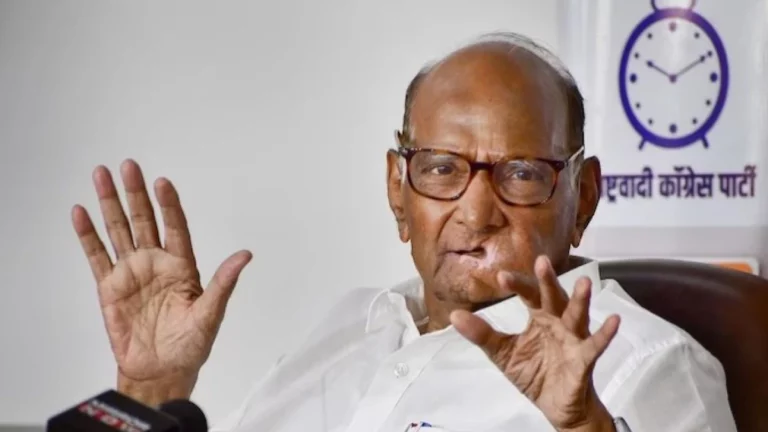
Sharad Pawar is an Indian politician and a prominent figure in Indian politics. He is the founder and president of the Nationalist Congress Party (NCP), a political party based in Maharashtra, India.
Pawar has had a long and illustrious political career spanning several decades. He has held several important positions both at the state and national levels. He has served as the Chief Minister of Maharashtra on several occasions, first from 1978 to 1980, then from 1988 to 1991 and later from 1993 to 1995. Pawar has also held ministerial posts in the Ministry of Defense and at the central level & Ministry of Agriculture.
Known for his shrewd political acumen and organizational skills, Sharad Pawar is regarded as one of the most influential politicians in Maharashtra and has played a significant role in the politics of the state. He has played a key role in the formation of coalition and coalition governments.
Pawar is known for his focus on agriculture issues, rural development and social justice. As Agriculture Minister, he initiated various policies to address the challenges faced by the farmers and promote agricultural development.
Throughout his career, Sharad Pawar has faced both praise and criticism. Supporters admire his political experience, leadership and ability to form and maintain political alliances. However, critics have raised concerns over issues such as allegations of corruption and his role in coalition politics.
8. Naveen Patnaik
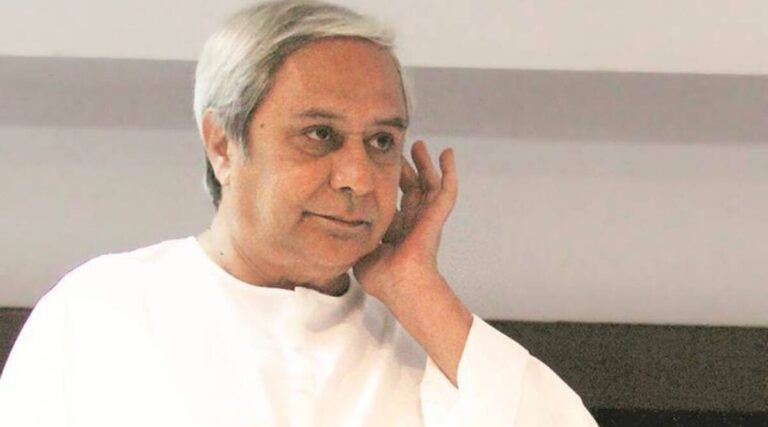
Naveen Patnaik is an Indian politician and the current Chief Minister of the Indian state of Odisha. He is the President of Biju Janata Dal (BJD), a regional political party in Odisha. Naveen Patnaik has been serving as the Chief Minister of Odisha since 2000, making him one of the longest serving Chief Ministers in India.
Naveen Patnaik comes from a political background. He is the son of Biju Patnaik, a noted politician and former Chief Minister of Odisha. Naveen Patnaik founded the BJD in 1997 after his father’s death.
Under the leadership of Naveen Patnaik, Odisha has witnessed significant development in various sectors. His government has implemented several welfare programs, focused on infrastructure development, and prioritized disaster management initiatives. Patnaik’s administration has been praised for its response to natural disasters such as cyclones and floods.
Naveen Patnaik’s clean image and administrative skills have contributed to his popularity in Odisha. His governance style emphasizes simplicity, transparency and public welfare. He has won consecutive elections in Odisha since 2000, leading BJD to consecutive victories.
Significantly, Naveen Patnaik’s political career and his contribution to the development of Odisha has been praised as well as criticized. Supporters credit him for his leadership, social welfare programs and focus on inclusive development. However, critics have raised concerns over issues such as the lack of industrial development and the state’s overall economic performance.
9. Nitish Kumar
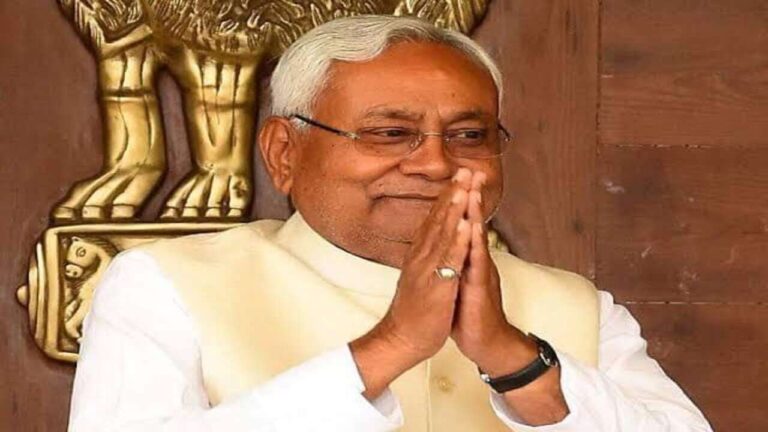
Nitish Kumar is an Indian politician and the current Chief Minister of the state of Bihar. He is serving as Chief Minister from November 2005 with a brief interruption from 2014 to 2015. Nitish Kumar is a member of the Janata Dal (United) (JD(U)), a regional political party in Bihar.
Nitish Kumar has had a long and impressive political career in Bihar. He first became chief minister in 2000 as part of a coalition government, and remained in that position until 2005. However, he resigned in 2014 following his party’s poor performance in the general elections. He later forged an alliance with the Bharatiya Janata Party (BJP) and returned to power in 2015 as chief minister.
Kumar’s tenure as Chief Minister has focused on various developmental initiatives in Bihar. His government has given priority to sectors such as education, health, infrastructure and poverty alleviation. Some of his notable initiatives include building roads and bridges, improving power supply, and programs aimed at women empowerment and social welfare.
Nitish Kumar is often known for his emphasis on good governance, inclusive development and social justice. His approach to governance has been described as pragmatic and focused on delivering results for the people of Bihar.
It is important to note that Nitish Kumar’s political career and his actions as Chief Minister have been both praised and criticized. Supporters laud his efforts to improve the state’s infrastructure, education and health care systems. However, critics have raised concerns over issues such as law and order, employment generation and the overall pace of development in Bihar.
10. Uddhav Thackeray
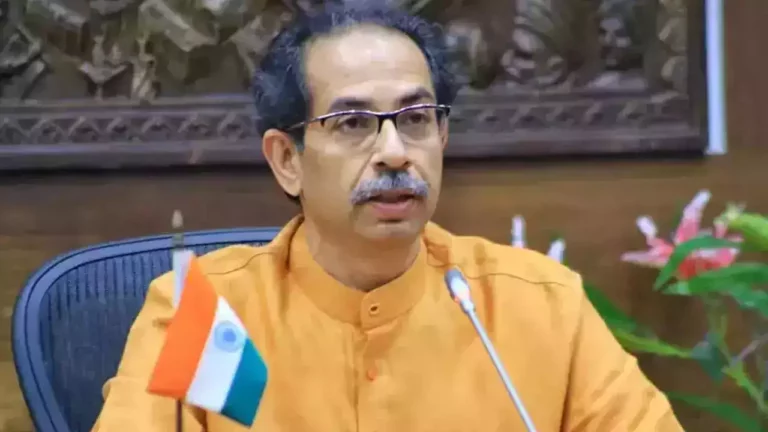
Uddhav Thackeray is an Indian politician currently serving as the Chief Minister of Maharashtra, one of the states of India. He is the leader of the Shiv Sena party, a regional political party based in Maharashtra. Uddhav Thackeray comes from a prominent political family. He is the son of Bal Thackeray, the founder of the Shiv Sena party.
Uddhav Thackeray assumed office as the Chief Minister of Maharashtra on November 28, 2019 with a coalition government of Shiv Sena, Nationalist Congress Party (NCP) and Indian National Congress (INC). This alliance is known as Maha Vikas Aghadi (MVA).
During his tenure as Chief Minister, Uddhav Thackeray has focused on various issues such as infrastructure development, agriculture, health care and reforms in governance. His government has also been involved in tackling challenges like the COVID-19 pandemic, providing relief to farmers and implementing welfare schemes for various sections of society.
